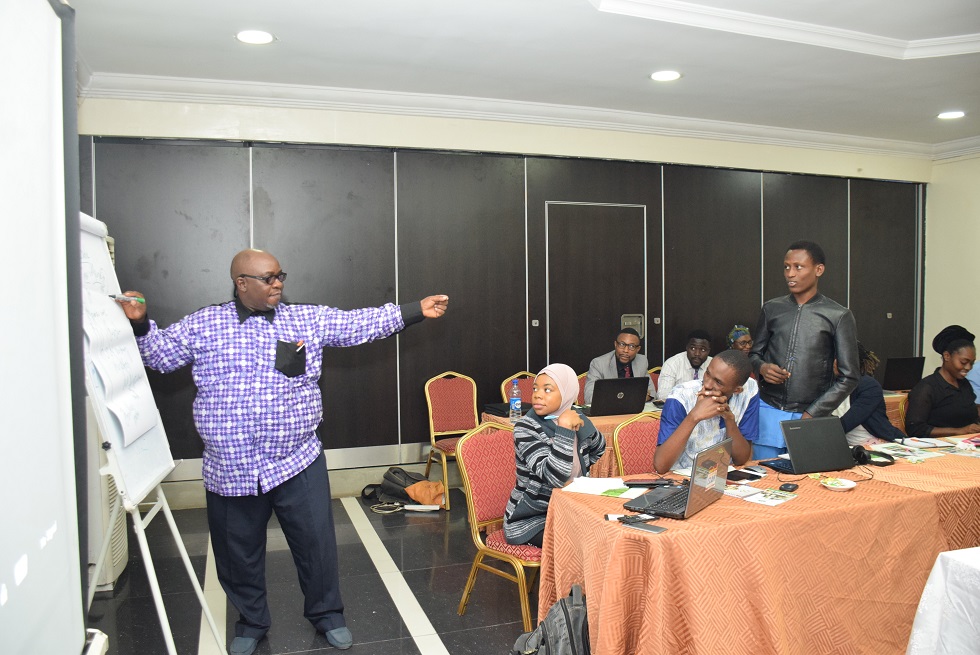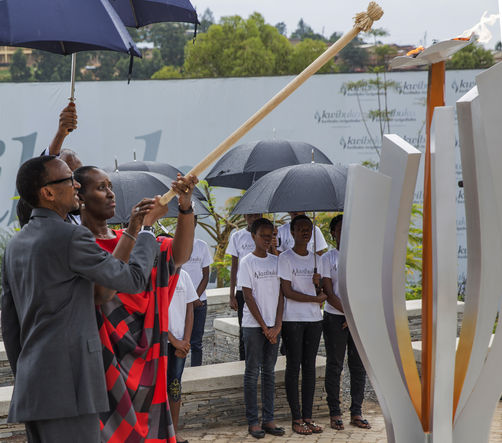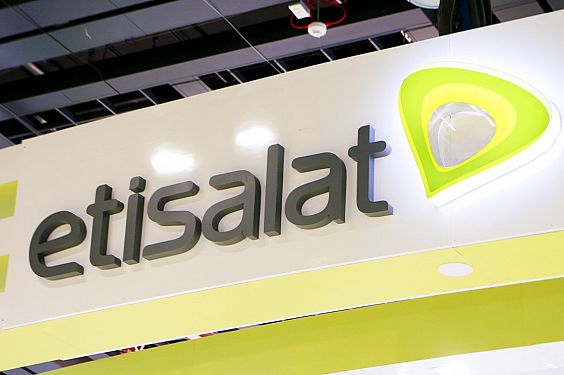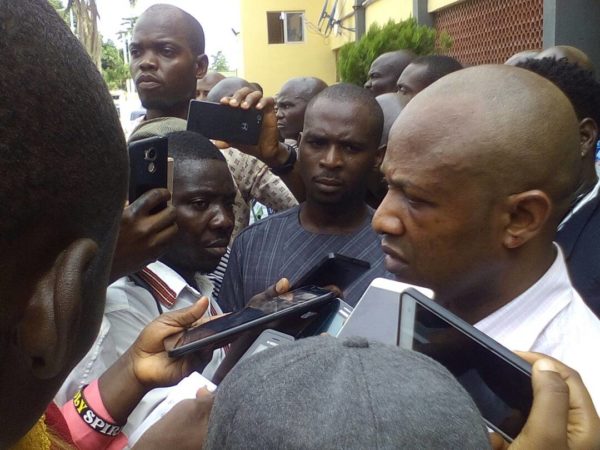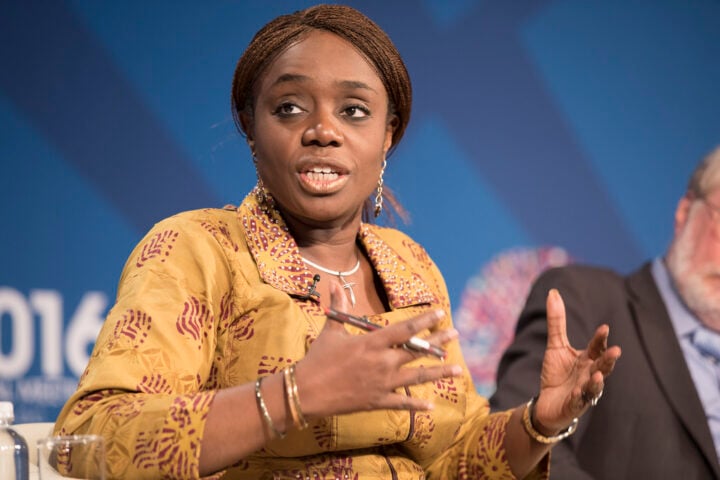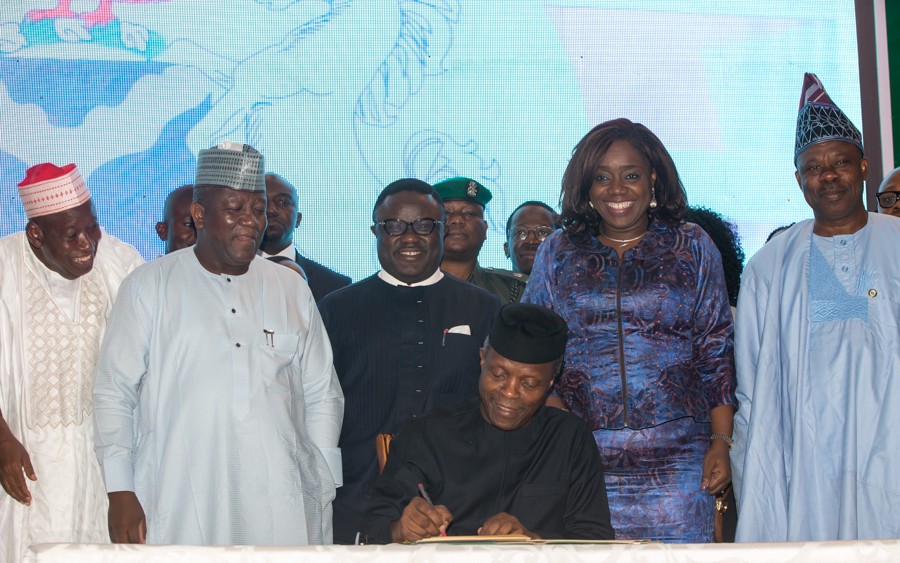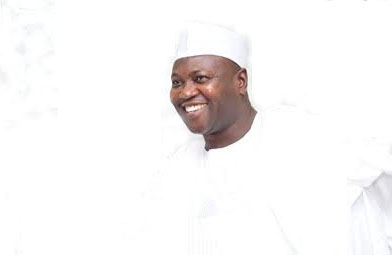Mayowa Tijani shares his investigative story idea with Taiwo Obe
Taiwo Obe, founder and director of the Journalism Clinic, says Nigerian politicians are never exact in the use of figures and it is the job of journalists to dig deeper.
Obe spoke on Friday while facilitating a workshop on data journalism organised by the Cable Newspaper Journalism Foundation (CNJF), a not-for-profit organisation and partner of TheCable newspaper.
CNJF is one of the nine organisations that got the OnNigeria grants from the John D. and Catherine T. MacArthur Foundation to advance anti-corruption efforts in Nigeria.
Participants, who came from different media organisations, were taken through sessions on the rudiments of data collection and processing, as well as the use of data to hold government and institutions accountable.
Advertisement
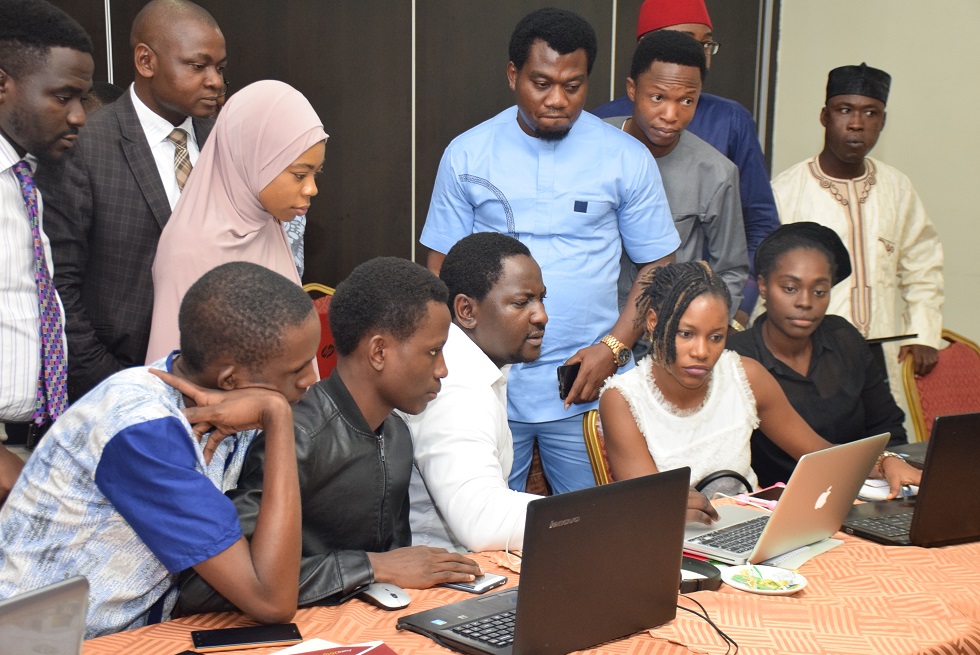
Obe, who spoke on developing creative story and data ideas, emphasised the importance of numbers, saying,”where there is more than one number, there might be a story”.
He said a journalist must find hardcore evidence to back up a story.
“When you read our papers, there is never that exact. What you find is ‘no less than’, ‘no fewer than’, ‘over’, ‘about’… but there is a list. So, why can’t we have that number?” Obe asked.
Advertisement
“The word ‘exact’ is not placed in the Nigerian politician’s dictionary, you won’t find it, because they know that nobody will ever ask the question. Those are the alarm bells that should be ringing in your brain.”
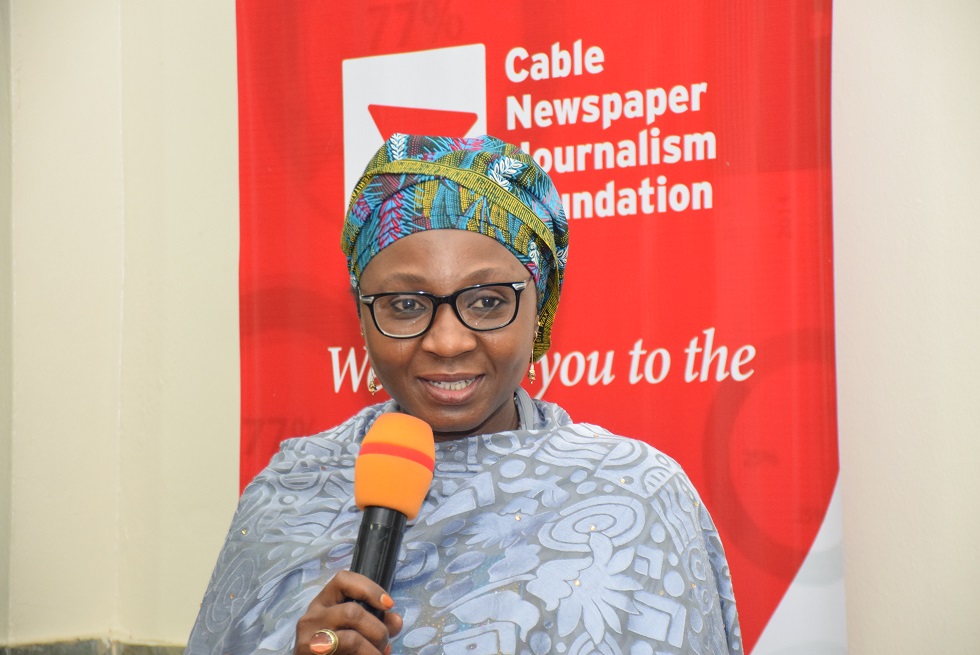
He referred to journalists as missionaries who are in the business of holding powerful institutions and individuals accountable.
“You should not be ‘about journalists’. Your job demands you to be ‘exact journalists’,” he said.
“The moment somebody tells you ‘about’, just pause. We have to develop the habit of thinking and asking those questions. You have to interrogate everything.”
Advertisement
In her goodwill message, Amina Salihu, senior programme officer, the MacArthur Foundation, commended the media for its role of enlightenment and exposing corruption.
She said the MacArthur Foundation is interested in tackling corruption in the education and power sectors, as well as ensuring a better criminal justice system in the country.
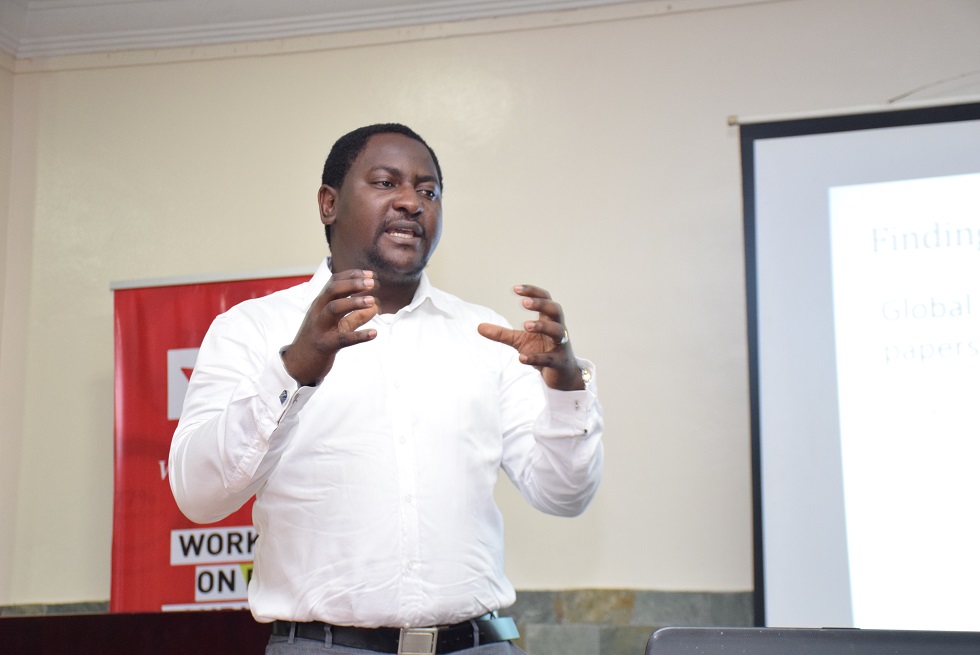
Other facilitators were Seun Akinfolarin, co-founder, Sahara Reporters CivicHub, and Yomi Kazeem of Quartz Africa.
Akinfolarin said journalism and technology are not mutually exclusive.
Advertisement
He said the failure of the government to provide journalists with data is not enough reason to bar them from sourcing for data and using it to write stories
“We don’t have data in Nigeria, but how do we do our work without it? It is a thin line that we have to tread carefully,” he said.
Advertisement
“I am not anti-government but I know that there is no government in the world that would allow free press as it were.
“We know the power at our fingertips with data. Journalists must as a duty interrogate to ensure that we protect our democracy.”
Advertisement
He spoke on the importance of telling stories with videos, infographic charts, and other multimedia tools.
On his part, Kazeem combined theory and practical in his presentation. He spoke on how to visualise a story and plot a graph.
Advertisement
He said a reader should be able to understand a chart within 30 seconds.
“Your chart must have a meaning. Your goal is for one to look at your chart and understand within 30 seconds,” Kazeem said.
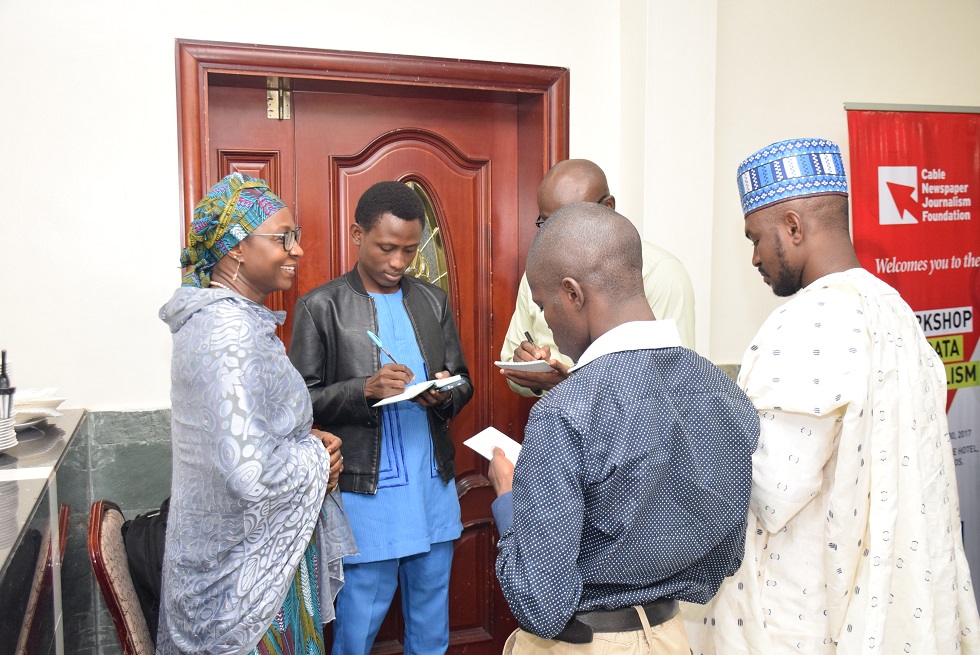
“A reader should be able to make sense without reading the story. Your chart should tell a story.”
Simon Kolawole, executive director of the Cable Foundation, said the essence of journalism is to help bring about change.
“The easiest thing to do is to complain about problems,” he said.
“Societies don’t change simply because people are complaining. To complain is part of the change process, but to be part of the solution is even better.”
He urged the participants to apply the knowledge gathered at the training, adding that “to learn and not to use is as good as not learning at all”.
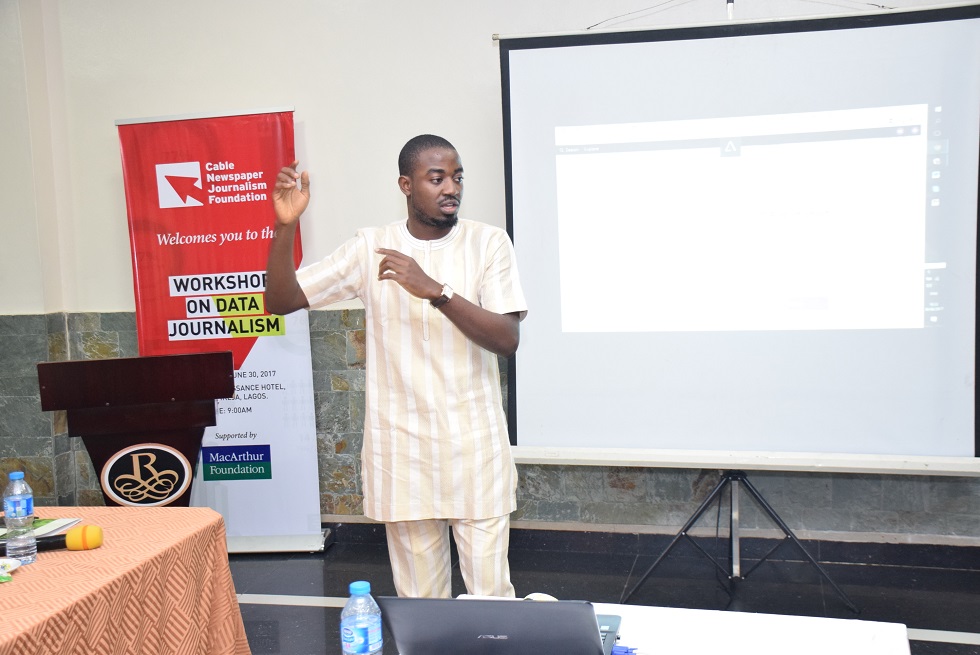
O’Femi Kolawole, CNJF programme director, also advised reporters to put what they learnt into practice.
He said as journalists go on with their jobs, a time will come when people will talk about them. He urged the participants to be agents of positive change.
Add a comment

